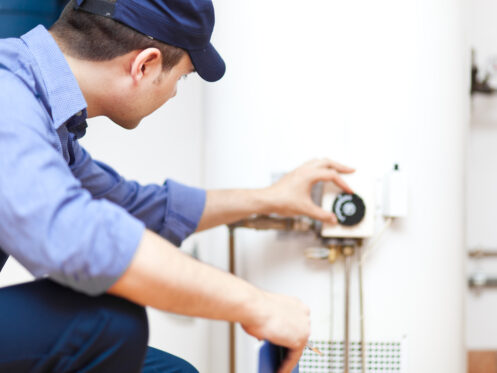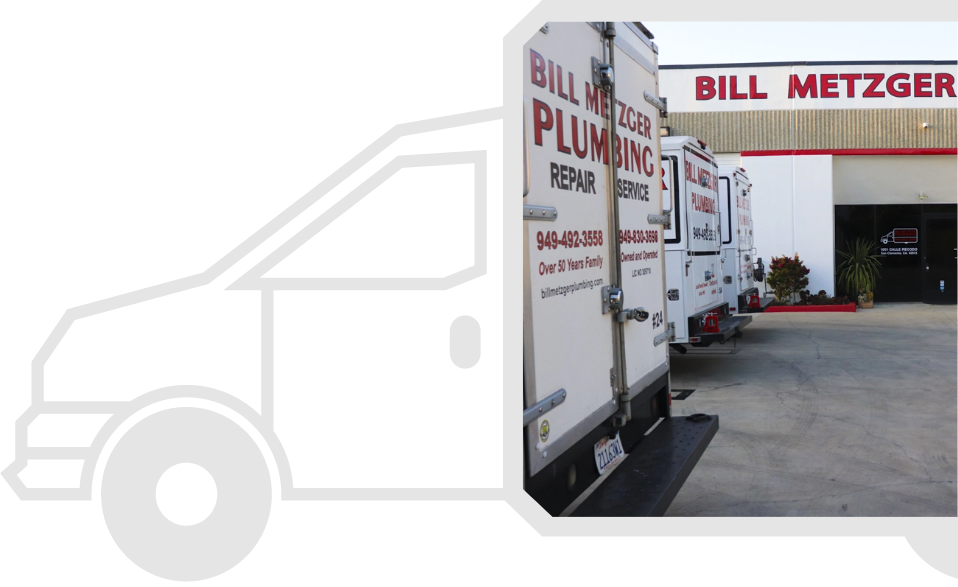Selecting a new water heater is a big decision. This appliance is an integral aspect of modern home comfort, and you’ll likely live with your decision for the next decade or more. With that in mind, let’s explore the important points you’ll want to consider before making that choice for your household.
Tank vs. Tankless Water Heater
An increasingly common choice that homeowners face is whether to go with a tank or tankless system. Conventional storage water heaters are the traditional choice. They were the primary way to provide hot water to American homes throughout the 20th century. Tankless water heaters became available in the 1970s, but it wasn’t until more recently that they became a practical option for the average house.
Tank Water Heaters
Storage water heaters cost less to install than tankless ones. These units have a reservoir that stores heated water. They heat water directly in the tank via a heating element. A 40- to 50-gallon tank is usual for the average family of four. But tanks as small as 20 gallons and as large as 100 are readily available.
There are a couple of downsides to tank water heaters. Capacity is limited. This usually isn’t a problem if you have sized the tank correctly. But it can be a problem, for instance, when you have guests for the holidays. Another issue is standby losses. This type of water heater has to continually heat the water so that it’s ready when you need it. This leads to significant wasted energy over the life of the system.
Tankless Water Heaters
Tankless water heaters don’t store hot water. Rather, they heat water on demand. The main advantage here is that you have a practically unlimited supply of hot water. It’s more difficult to size such units, though. It’s important to have a plumber help you gauge your usage. This includes heating water for showers, baths and cooking as well as washing machines, dishwashers and other appliances that use hot water.
Cost is another consideration. A tankless water heater can cost twice as much to install. There can also be additional costs the first time around, such as electrical panel upgrades. That said, tankless systems last much longer, so their total cost is lower. They’re also much more efficient and cheaper to run. The industry estimates the month-to-month savings to be 20% for the average home.
Other Water Heater Varieties
While tank and tankless water heaters are the most prevalent solutions, there are other options worth noting. These are heat pump water heaters and tankless coil and indirect water heaters. What distinguishes these systems is that they integrate with the home’s heating system. These systems are very energy efficient as well. The challenge is that you generally have to plan for them when the HVAC system is installed.
Fuel Type
There are six fuel types to consider:
- Electricity
- Natural gas
- Fuel oil
- Propane
- Geothermal energy
- Solar energy
The vast majority of homes in the U.S. use natural gas or electric water heaters. Electric water heaters are less expensive to buy and install but also less energy efficient. Natural gas water heaters are more expensive up-front but cost less over the life of the equipment. Depending on where you live, fuel oil and even propane may be comparable to natural gas. Geothermal and solar provide the best long-term savings, but the additional initial costs are significant.
Size
When sizing a tankless water heater, the important number to note is gallons per minute. Modern systems range from about 2 to 12 GPM. A 5 GPM system will let you run two to three fixtures simultaneously. A 7 GPM system will let you run three to four.
Tank systems are easier to size, as there are simple guidelines for gallons per person. There are challenges if your household count fluctuates. For example, you could size a water heater so that it accommodates your children when they’re home from college. But that would increase your energy costs unnecessarily the rest of the year.
Space Requirements
Tank water heaters require much more space and often demand a dedicated room. If you install one in a garage, you can opt for a tall water heater that takes up much less horizontal space. If you don’t have much room, there are lowboy water heaters that are much wider. Tankless systems don’t need much room at all. Many homeowners install them in an attic or garage.
Features to Consider
There are a wide range of features to consider. Smart water heaters allow remote access and control from your phone. Units with digital displays are available. Most experts recommend a water heater with brass drain valves rather than plastic ones because they’re more durable. Anti-scale devices can help to mitigate mineral buildup. Glass-lined tanks help to avoid corrosion. Dry-fire protection is a feature for electric water heaters that helps keep the upper element from burning out.
Energy Efficiency and Annual Operating Costs
The uniform energy factor (UEF) is a measure of water heater efficiency. You can find the UEF information on a water heater’s yellow label. The higher the UEF, the more energy efficient the unit is. The label will also provide you with the estimated yearly operating cost. This allows you to compare water heaters across the different types and fuel sources. If you’re choosing a gas water heater, you may want to look at the high-efficiency models. These are condensing units that reclaim heat energy from their exhaust.
Warranty and Energy Star Certification
The U.S. Environmental Protection Agency (EPA) certifies water heaters through its Energy Star program. A water heater with this certification gives you peace of mind that the unit will deliver on the manufacturer’s energy claims.
Water heater warranties range from as short as one year to as long as 12. This coverage protects you against manufacturing defects, including the heat exchanger. Units with 12-year coverage will cost you more, but most experts agree the added cost is usually worth it.
Federal Tax Credit and Local Energy Rebates
Many Energy Star water heaters make you eligible for the Energy Efficient Home Improvement Tax Credit. The current credit is valid through Dec. 31, 2032. It allows you to claim 30% of the total project cost up to $600. You should also check the EPA website for local sustainable energy rebates. Depending on your area, these rebates can range from $50 to as much as $400.
Water Heater Installation in Orange County
If you need a new water heater installed, Bill Metzger Plumbing is the plumbing company to trust. We’ve served Orange County, CA and the surrounding areas since 1961. Our plumbers also offer a full range of other services including water and gas repiping. We install sump pumps, garbage disposals, and water treatment systems and do slab leak detection as well. You can also rely on us for video camera inspections, drain cleaning and hydro jetting.
Call us at Bill Metzger Plumbing today, or contact us online to schedule an appointment or get answers to any questions you may have.



 Today
Today 